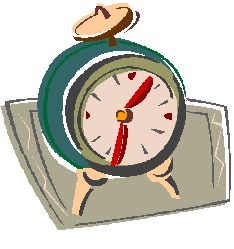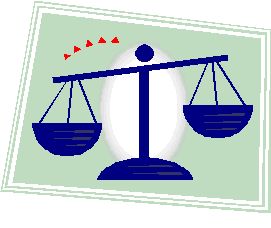11 Free Tips
Improve Studying Results
11 free study tips from Sound Feelings enhance learning how to learn, memorization, and studying speed. Our free information reveals simple secrets, solutions and strategies to improve study habits, study methods, study tips, study skills, and help with test preparation and learning skills. These educational psychology learning aids and techniques become tools or guides for self-improvement and better grades which will help with homework, better grades, dyslexia, attention deficit disorder and end frustration.
FIND YOUR STUDYING, STUDYING HABITS AND STUDY HABITS. STUDYING METHODS, STUDY METHOD. GET MORE STUDYING AIDS AND STUDY AIDS ALONG WITH LEARNING GUIDES, LEARNING AIDS AND TUTORING TOOLS. FIND MORE TIPS, TECHNIQUES, SECRETS AND SOLUTIONS OR STRATEGIES AND SKILLS. THESE TRICKS AND SELF-HELP OR SELF-STUDY FOR SELF-IMPROVEMENT AND BETTER GRADES. LEARNING HOW TO LEARN WITH EDUCATION. YOU CAN ENHANCES AND IMPROVES EVEN IMPROVING YOUR MEMORY. MEMORIZE OR MEMORIZATION WITH OUR FREE INFORMATION. GET FREE TIPS FOR HOMEWORK, DYSLEXIA AND ATTENTION DEFICIT DISORDER. EVEN ADD HOW-TO BOOKS AND HOW-TO PUBLICATIONS. INCREASES YOUR STUDYING SPEED WITH INFORMATION PRODUCTS AND EDUCATIONAL PSYCHOLOGY. LEARN TEST PREPARATION AND AVOID FRUSTRATION FROM HOWARD RICHMAN AT SOUND FEELINGS.
1 Study in Short, Frequent Sessions.
It has been proven that short bursts of concentration repeated frequently are much more effective than one long session. So, even if you only have 10 minutes, DO IT. Take a break. Then study another 10 minutes. This “distributed learning” approach is highly efficient because it honours the way the brain likes to work. The brain needs recovery and recharging time for “protein synthesis.” The rest periods are when your brain assimilates your effort. They are a powerful tool which many teachers do not acknowledge. To sit and study for hours and hours is not only boring, it creates fatigue, stress, and distraction. You cannot learn if you are fatigued, stressed, and distracted!
2 Take Guilt-Free Days of Rest.
This follows the same principle as above, but on a longer, daily time cycle. The reason for resting is to refresh oneself. However, if you feel guilty (“I really should be studying”) then your precious rest period has been used to create more stress. The brain will not absorb new data if it is stressed. On days off from studying, really enjoy yourself and do not feel bad about not studying.
3 Honour Your Emotional State.
Do not study if you are tired, angry, distracted, or in a hurry. When the brain is relaxed, it is like a sponge and it naturally absorbs data without effort. If you are emotionally stressed, your brain literally repels data. Forcing yourself to sit and study when your mind is on other things is a complete waste of time!
4 Reviews the Same Day.
When you learn something new, try to go over the points the same day. If you wait a few days and then make efforts to review the material, it will seem much less familiar. However, a quick review later in the day will tend to cement the information into your brain so that the next “official” study session, you will recognize it and it will seem easy.
5 Observe the Natural Learning Sequence.
Think of the activities you did when you were in nursery school. Using your whole arm, you probably performed the song that goes: “Put your right hand in, Put your right hand out.” Then, in kindergarten, using your hand, you might have been asked to draw lines or circles with crayons. Later, in first grade, now holding the pencil with your fingers, you drew smaller lines and circles to create letters. Believe it or not, this natural learning sequence, moving from large to small, coarse to fine, still remains effective even though we are now older. When you study, if you try first to grasp the big picture and then fill in the details, you often have a more likely chance of success.
6 Use Exaggerations.
Why does a baseball batter warm up by swinging two or three bats? Why do runners sometimes strap lead weights to their legs? In both cases, exaggeration during practice makes the final result seem easy. This concept can be applied to studying anything. For example, if you are studying spelling, exaggerate the sound of the letters to help to remember them. So for studying purposes, “naive” would be pronounced “NAY-IVY.” By getting used to this exaggerated pronunciation, the correct spelling seems obvious.
7 Prepare Your Study Environment.
If you require certain elements in your environment to help you study, try to always make these a priority. For example, do you need special lighting, silence, music, privacy, available snacks, etc.? Pay attention to what works for you and repeat it each time you study for best success.
8 Respect “Brain Fade.”
It is normal for the brain to have an attrition rate and to forget things. This does not mean that you are stupid! Instead of getting mad about this fact, you should expect it and deal with it accordingly. See your brain as depositing layers of knowledge. As you place more information on top, the lower levels become older and less available to your immediate recall. The trick here is simply to review. Since we can anticipate the eventual fading of our memory, creating a review aspect to our study session will solve the problem. Once every two or three study sessions, simply review older material that you will be still needing to remember. Often, a quick overview is sufficient. Sometimes, a complete detailed study session of the older material is required. “Brain fade” is completely normal. (Unless you are gifted with a photographic memory, which is extremely rare.)
9 Create a Study Routine.
Generally, if you schedule certain times of the day to study, you will get into a routine and accomplish more. If you just “fit it in” during your day, chances are that there will never be any time. An effective way to do this is to literally mark it down in your datebook calendar as if you have an appointment, like going to the doctor. For example: “Tuesday 3-4:30 P.M. — Study.”
10 Set Reasonable Goals.
One of the main reasons people do not reach their goals is because they set them too high. If you set goals that are manageable, even if they seem too simple, you get in the habit of accomplishing them and gradually you can set higher goals. Also, recognize the difference between long-term and short-term goals. Set your vision on the long-term dream, but your day-to-day activity should be focused exclusively on the short-term, enabling steps.
11 Avoid the Frustration Enemy.
Ironically, the quicker the person’s nervous system, the faster they learn. Yet, this fast nervous system also works overtime in being self-critical. So they are the ones who always think they aren’t going fast enough! In contrast, the “Type B,” less intense person who learns slower yet is more self-accepting, ends up ultimately learning the material in a shorter period of time. This is because he/she doesn’t waste energy blocking, getting upset, and thinking that they’re not good enough — they simply keep moving forward at a slower (but un-blocked) pace.










